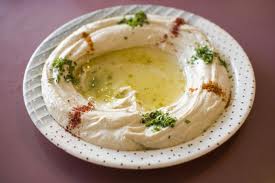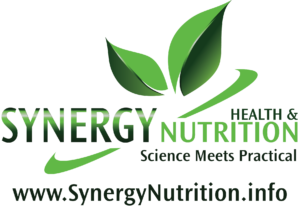Your vital guide to sleep nutrition foods
I can’t sleep; I can’t lose weight (and their cousins: I’m low energy, cranky, full of anxiety…) are probably the most common complaints I hear as a Life Coach. Small business owners who want to make their dreams come true, nutritional clients; you all mention sleep problems as a top item on your list, second to relationships and often before weight. Sleep nutrition is key.
Sleeping well is key to moods/energy, which are key to relationships… but weight loss? Yes, that too according to well-thought-out study by Plamen Penev, MD, PhD, assistant professor of medicine at the University of Chicago.
In a future post I’ll explore the sleep / weight loss / digestion connection. For those of you who want answers now / theory later; here’s the sleep nutrition solution.
This blog is really about resources. Click on the links and/or images to go to recipes and other useful sleep nutrition tools.
Sleep Soundly
Almonds
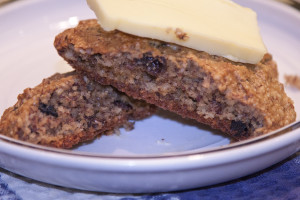 Not only can substituting nuts for an equivalent amount of carbohydrates reduce heart disease risk by 30% according to the Harvard University Nurses Study II, nuts should be part of your sleep nutrition. In addition to healthy fats and vitamin E, a quarter-cup of almonds contains 21.9% the daily value (RDA) of tryptophan—an amino acid associated with relaxation and sense of well being—plus 24.7% of the daily value for magnesium (99 mg), plus 257 mg of potassium—minerals that naturally reduce muscle and nerve function while also steadying your heart rhythm.
Not only can substituting nuts for an equivalent amount of carbohydrates reduce heart disease risk by 30% according to the Harvard University Nurses Study II, nuts should be part of your sleep nutrition. In addition to healthy fats and vitamin E, a quarter-cup of almonds contains 21.9% the daily value (RDA) of tryptophan—an amino acid associated with relaxation and sense of well being—plus 24.7% of the daily value for magnesium (99 mg), plus 257 mg of potassium—minerals that naturally reduce muscle and nerve function while also steadying your heart rhythm.
Cherries
A great way to get a good night’s sleep is to increase your melatonin intake. Fresh cherries, along with nuts and potatoes (please just stay away from the big white potatoes), are a natural source of melatonin and, when eaten regularly, can help regulate your sleep cycle.
Hummus
This Middle Eastern spread is another great source of tryptophan. If you find yourself waking up hungry in the middle of the night, munch on hummus during the day to stop it. Naturally high in tryptophan and other sleep nutrition minerals, properly prepared legumes are an excellent addition to your routine diet.
Eat Your Greens
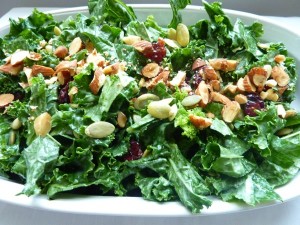 Spinach, watercress, mustard greens, chard and asparagus have high amounts of tryptophan and are packed with other nutrients. Whether you’re vegetarian, vegan or anyone, combine these with nut sauces, especially tahini (sesame seeds) for a more complete protein and a staple of sleep nutrition.
Spinach, watercress, mustard greens, chard and asparagus have high amounts of tryptophan and are packed with other nutrients. Whether you’re vegetarian, vegan or anyone, combine these with nut sauces, especially tahini (sesame seeds) for a more complete protein and a staple of sleep nutrition.
Seafood
One of the best sleep nutrition tools is seafood. Additionally to being a great source of tryptophan, fish are high in omega 3 fatty acids. Most omega 3’s help relax, focus our thoughts, heal, and repair and most of us do not get enough in our diet.
Chicken and Turkey
Although our annual thanksgiving coma may be caused more by the amount and not type of food, turkey (and chicken) are one of the highest sources of tryptophan per calorie. Metabolized into niacin (B3), serotonin and melatonin, key mood helpers, most of the foods on this list are high in tryptophan and other nutrients that help the body relax.
Potatoes
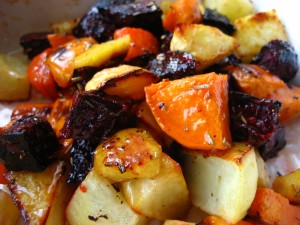 Yes, controversial; yes, not for everyone; but potatoes remain a comfort food and are sound sleep nutrition. Rivaling the nutrient quality of broccoli, potatoes have 60 different kinds of free-radical-scavenging phytochemicals and vitamins in their skins and flesh and are a good source of mood promoting tryptophan, vitamin B6, vitamin C, copper, potassium, manganese, and dietary fiber—except, that is, for the white Idaho versions that may even be GMO.
Yes, controversial; yes, not for everyone; but potatoes remain a comfort food and are sound sleep nutrition. Rivaling the nutrient quality of broccoli, potatoes have 60 different kinds of free-radical-scavenging phytochemicals and vitamins in their skins and flesh and are a good source of mood promoting tryptophan, vitamin B6, vitamin C, copper, potassium, manganese, and dietary fiber—except, that is, for the white Idaho versions that may even be GMO.
Herbal Teas
Some teas have tons of snooze-promoting properties. Top ones to lull you to sleep include chamomile, passionflower hops, and lemon balm.
Dark Chocolate
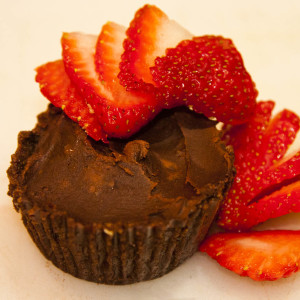 Milk chocolate is a stimulant—so is sugar; but non-cane/corn sweetened dark chocolate (cacao) contains serotonin, which relaxes your body and mind and is associated with a feeling of well-being. Cacoa also has flavenols that help keep our skin soft and joints happy. But this is reversed when sweetened with cane, agave or corn sugar (look for Rainforest and other fruit-sweetened brands).
Milk chocolate is a stimulant—so is sugar; but non-cane/corn sweetened dark chocolate (cacao) contains serotonin, which relaxes your body and mind and is associated with a feeling of well-being. Cacoa also has flavenols that help keep our skin soft and joints happy. But this is reversed when sweetened with cane, agave or corn sugar (look for Rainforest and other fruit-sweetened brands).
Toss and Turn
Caffeine
A “no-brainer”, eh? Did you know that caffeine isn’t actually giving your body any real energy? Yes, it’s a stimulant, but that feeling of alertness also comes at a nutritional cost. You may, in fact, be using its stimulative ways to make up for underlying malnutrition. Love your coffee, just don’t become dependent on it.
Dairy and Aged Cheese
If a nap is in your future, steer clear of Parmesan, Romano, Asiago, and other hard cheeses with high levels of the amino acid tyramine are known to keep you up. Besides, current dairy practices in the U.S. are, well, unhealthy to say the least.
Carbs and Sugars
We’re told to eat carbs for energy and they may be your worst enemy. Simple carbs like candy and soda are quickly digested but additional to the temporary and artificial energy boost, they result in an immediate inflammatory response. Even whole grains tend to spike blood glucose levels followed by an energy crash once the glucose levels drop back down. But low energy does not equate to sound sleep. The body now mobilizes to convert the sugars to fat and eliminate byproducts—we experience this as frequent urination, night sweats, bad dreams… not good sleep nutrition!
Milk Chocolate
Most milk chocolate bar contains tyrosine, which does two things: 1. it is converted into dopamine—a stimulant that causes alertness and restlessness; and 2. it competes with and prevents tryptophan from crossing into the brain where it can be made into the relaxing hormone serotonin.
Energy Drinks
It’s not just the caffeine in energy drinks that makes you wired. Most beverages contain taurine, an amino acid that increases alertness and elevates your heart rate and blood pressure. Not to mention the sleep nutrition enemy: sugar.
Spicy Foods
Hot tamale! While hot wings and spicey salsa taste great, they aren’t going to feel so great come bedtime. Make sure you eat your favorite hot foods early enough in the day to prevent a sleepless night later.
Tomatoes and Other Night Shades
For some, tomato-based and nightshade foods are poorly digested and prevent a good night’s sleep, especially when consumed with starches or later in the evening. For some, they can create local histamine reactions and other upsets that prevent your dozing off. We are all different on this one.
Ginseng Tea
While some herbal teas are great for sleeping, consume ginseng earlier in the day. Although an excellent tea for digestion, aids detoxifying—especially metals, and helps nervous system activity in many ways, drink it earlier as it does make some people restless.
Processed, Preserved Meats
Processed meats contain high levels of tyramine and makes the brain release a chemical that makes us feel alert. These meats also aren’t the healthiest ones to munch on either, sleep nutrition and patterns aside, avoid processed meats for regular health nutrition.
Alcohol
Even though it’s a depressant, alcohol will, oddly enough, keep you up at night. Many people use alcohol to help them relax, but it actually prevents your body from entering the deep stages of sleep,
Soy
Fermented soy products—meaning soy sauce, tofu, miso, and even teriyaki sauce—have some of the highest amount of tyramine. Avoid these hours before snoozing; and if you must have these definitely buy organic to ensure they are not GMO.
Copyright (c) 2013 Marie Sternquist. All Rights Reserved
References
Grossman, Mary H.; Hart, Cheryle R. (2008). The Feel-Good Diet. New York: McGraw-Hill. p. 64. ISBN 0-07-154849-1.
Holmes MC, French KL, Seckl JR (1997). “Dysregulation of diurnal rhythms of serotonin 5-HT2C and corticosteroid receptor gene expression in the hippocampus with food restriction and glucocorticoids”.J. Neurosci. 17 (11): 4056–65. PMID 9151722
Young SN (2007). “How to increase serotonin in the human brain without drugs”. Rev. Psychiatr. Neurosci. 32(6): 394–99. PMC 2077351. PMID 18043762
Raat H, Struijk MK, Remmers T et al. (2013) “Primary prevention of overweight in preschool children, the BeeBOFT study (Breastfeeding, Breakfast daily, Outside playing, Few sweet drinks, less TV viewing): design of a cluster randomized controlled trial.” BMC Public Health. 2013 Oct 19;13(1):974. [Epub ahead of print] PMID:24138805
Navarre R, Brown C (2007) “Phytochemical Profilers Investigate Potato Benefits,”. Agricultural Research, September 2007. Agricultural Research Service.





